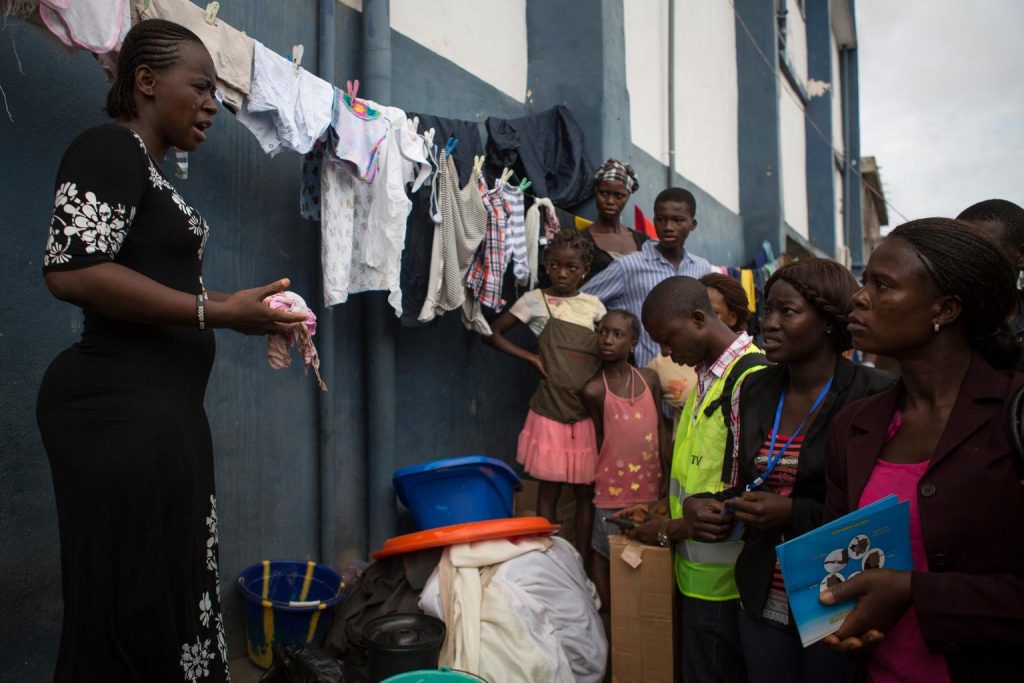WHO’s social mobilization team is using radio to reach communities with information about how to prevent the spread of Ebola in Sierra Leone.
Briefings
Sierra Leone: Increasing Community Engagement for Ebola On-Air

UNICEF/UNI171270/Bindra
On 19 September, a social mobilizer speaks with residents about protecting themselves against EVD and preventing its spread, in Freetown, the capital.
From 1921 September in Sierra Leone, a public information campaign aimed to reach every household countrywide with life-saving messages on Ebola virus disease (EVD). UNICEF provided technical and financial support, including information materials, for the Government-led campaign, called the Ose to Ose Ebola Tok initiative, which means house-to-house talk in the local Sierra Leonean language. During the campaign, over 28,500 trained social mobilizers, youths and volunteers went door-to-door to reach 1.5 million households and provide residents with information on protecting themselves against EVD and preventing its spread. UNICEF estimates that 8.5 million children and young people under the age of 20 live in areas affected by EVD in Guinea, Liberia and Sierra Leone, countries where disease transmission is widespread and intense. Of these, 2.5 million are under the age of 5. Nigeria and Senegal are also affected, having seen an initial case or cases, or experienced localized transmission. The current EVD outbreak in West Africa is the worst in history.
Related content
Infographics
Key Considerations: Child Engagement in the Context of Disease Outbreaks in Eastern and Southern Africa
This infographic summarises the insights from a recent key considerations brief on child engagement in the context of disease outbreaks in Eastern and Southern Africa. This brief explores why, when and how to engage children in the prevention, response and…
Central and East Africa Hub
SSHAP
2024
Infographics
Key Considerations for Responding to Floods in South Sudan Through the Humanitarian-Peace-Development Nexus
This infographic summarises the insights from a recent key considerations brief on responding to floods in South Sudan through the lens of Humanitarian-Peace-Development (HDP) Nexus. The brief describes the multidimensional impacts of flooding on peace, health, livelihoods and governance and…
Central and East Africa Hub
SSHAP
2024
Briefing
Key Considerations: Child Engagement in the Context of Disease Outbreaks in Eastern and Southern Africa
Effective child engagement strategies are essential to optimise the response to disease outbreaks and minimise their impact while ensuring children’s protection, well-being and resilience. When children understand disease outbreaks, they are better able to cope, contribute and recover. This promotes…
Central and East Africa Hub
SSHAP
2024
Briefing
Key Considerations for Responding to Floods in South Sudan Through the Humanitarian-Peace-Development Nexus
In common with many other African countries, the Republic of South Sudan is increasingly experiencing devastating floods linked to climate change.1,2 The Indian Ocean Dipole (IOD) and El Niño regulate the climate of Equatorial Eastern Africa. In 2019, a dipole…
Central and East Africa Hub
SSHAP
2024


